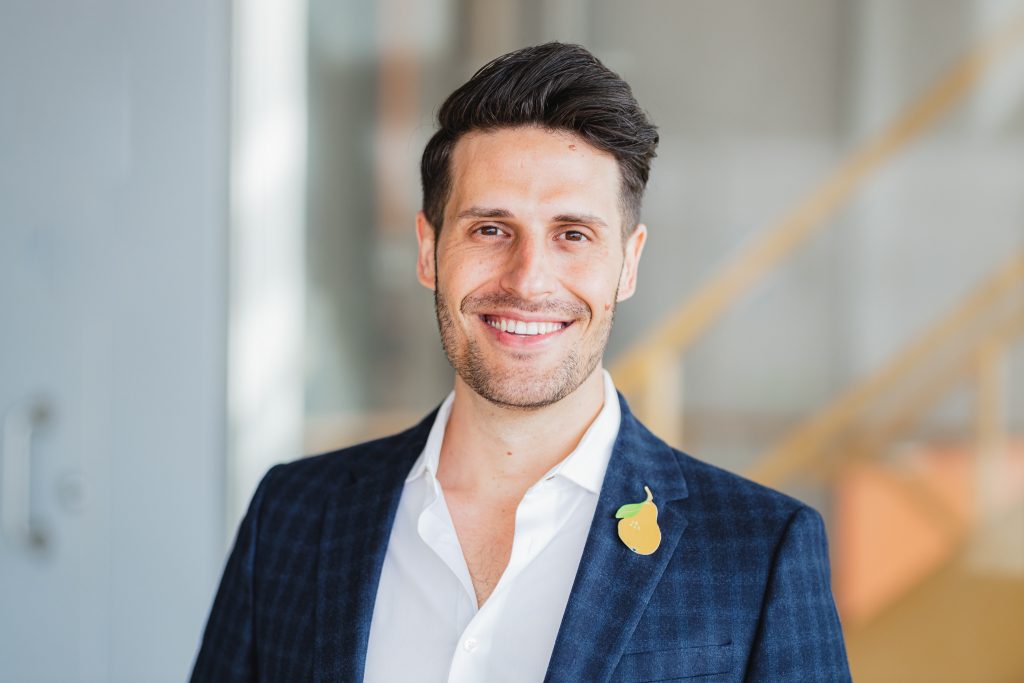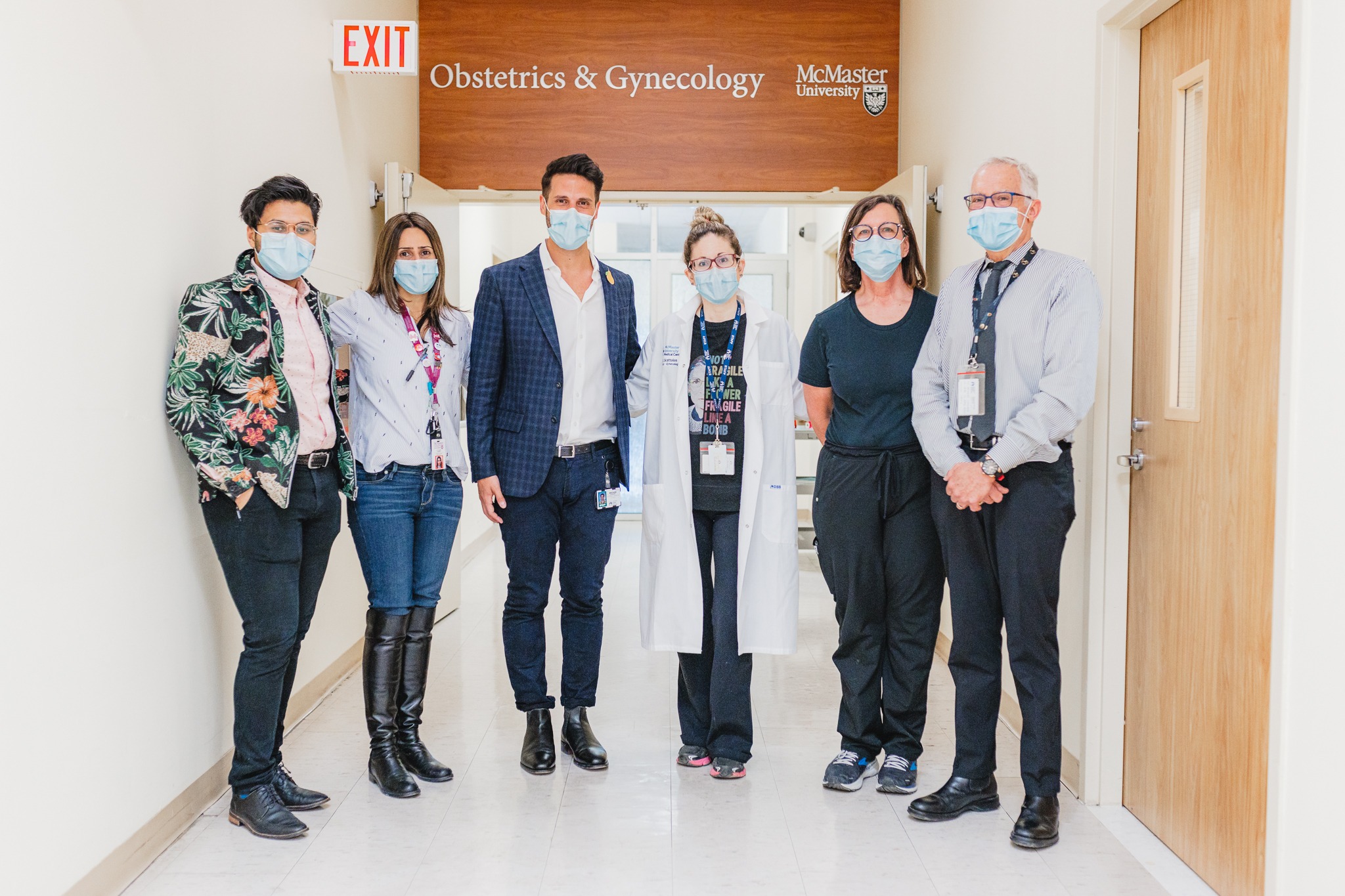
Introducing a gynecologist who specializes in endometriosis
Endometriosis is a chronic inflammatory condition that affects the whole body. It happens when tissue similar to that which normally lives inside a person’s uterus grows outside of their uterus, such as in the ovaries, bowel, pelvic ligaments, or other parts of the body, often causing pain. The condition affects up to 1 in 10 women and an uncertain number of gender diverse individuals or transgender men.
We spoke with Dr. Mathew Leonardi, advanced gynecologic surgeon and ultrasound specialist at McMaster University Medical Centre’s 2F endometriosis clinic to learn more about the condition.
What are some of the symptoms and limitations of endometriosis?
Primarily, people with endometriosis experience pelvic pain around their menstrual cycle, but constant abdominal or pelvic pain is also common. Pain with bowel movements, urination, and intercourse are especially common symptoms. Infertility is something that occurs in some people with endometriosis.
How is someone diagnosed?
Diagnosis can be achieved through imaging, such as ultrasound or MRI, or through surgery. People can be suspected as having endometriosis based on their symptoms, which is a good starting point to get to the right doctors for consideration of treatment. The topic of diagnosing endometriosis is fascinatingly complex and a comprehensive review written by myself and colleagues can be read at https://doi.org/10.1002/uog.24892 if interested.
What are the treatment options?
Broadly, there are three categories of treatment options: surgery, medications (e.g. pain medications, hormonal medications), and alternative strategies (e.g. diet modification, physical therapy). Treatment should be guided by patient autonomy and informed consent. In most cases, the best treatment for long-term management of the disease is a combination of these options.
What makes our clinic unique?
Our Hamilton Health Sciences endometriosis clinic is one of the few in the whole country that integrates an advanced pelvic ultrasound for endometriosis and other pelvic pain causes as part of the clinical visit instead of separate appointments . In real time, patients can learn about what is going on and how the refinement of the diagnosis can lead to improvements in their treatment path.
What are some of the challenges running the clinic?
There is extremely high demand for this clinic. Our clinic receives about 80-100 referrals per month. Each month, there are only about 40 new patient slots. To accept a high volume of new patients, we need to get patients well enough to be discharged. A multi-modal approach to treatment, including surgery, is often the best strategy to achieve this. Often, once a patient has been operated on for their endometriosis, they can be discharged a few months after recovery. However, since we are operating at such low volumes right now due to the COVID-19 pandemic – we are doing our best to “manage” symptoms for our patients until we can get to surgery.
Why did you get into women’s health and specialize in endometriosis specifically?
I like the ability to help people with gynecologic issues that have typically been swept under the rug and ignored. I want to help people reach their potential for quality of life, reducing how their gynecologic disease(s) impairs them and their family, profession, their life. I also enjoy the technical aspects of performing surgery and ultrasound.
What research projects are you involved in?
So many, but I will highlight three. One very important study is looking at reasons why surgery for endometriosis often fails to fully treat the disease. What factors are preventing full treatment, and can we better predict those? Another study is looking at the effect of an anti-inflammatory diet on the gastrointestinal symptoms of patients with endometriosis. I was fortunate to win the HHS New Investigator Fund valued at $50k to facilitate this study. Finally, we are looking at ways to improve the diagnosis of endometriosis non-invasively using ultrasound.
What would you say to someone suffering from endometriosis?
There is an ever-growing group of health care professionals – doctors, physical therapists, dietitians, etc. – who care about you and want to find ways to make life with endometriosis better. Similarly, there is growing research in the area, making the future more optimistic. For now, we are doing our best at Hamilton Health Sciences to see you and others with the disease, both in the literal sense of seeing you for consultation but also figurative sense of validating your experience, and we are training several fellows, soon to be fully-fledged endometriosis experts. The future is bright!
Patients can be referred to the 2F Endometriosis clinic by their family doctor or gynecologist.
March is Endometriosis Awareness Month.

